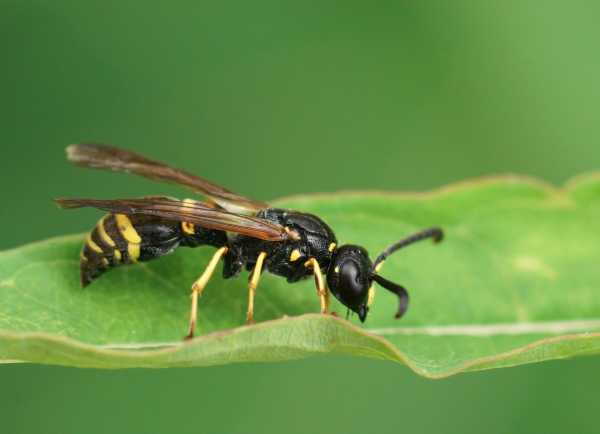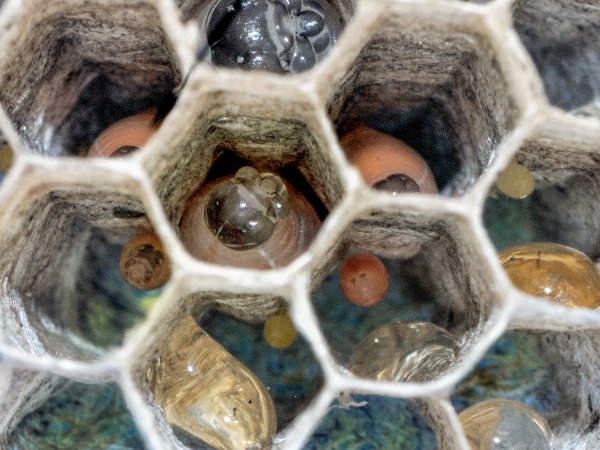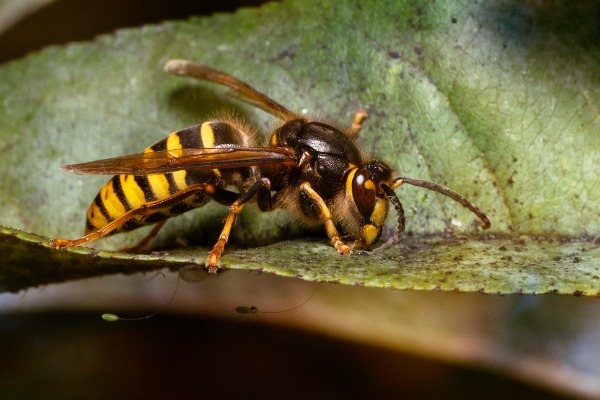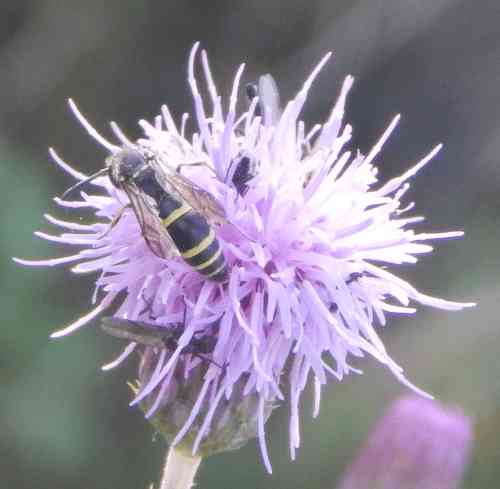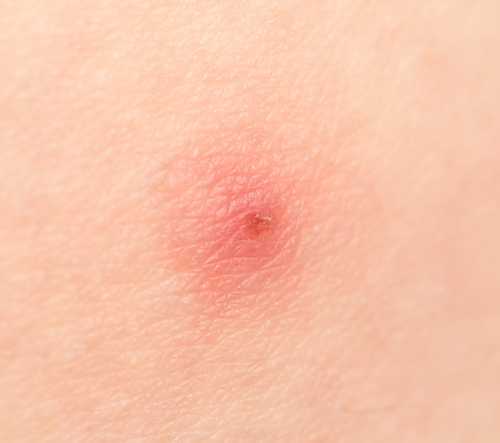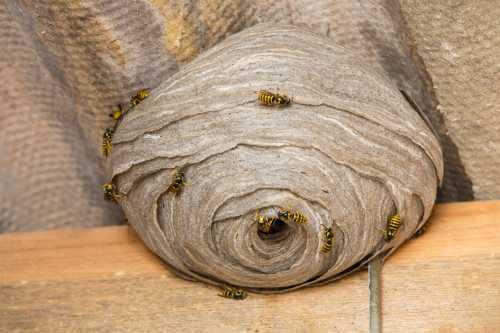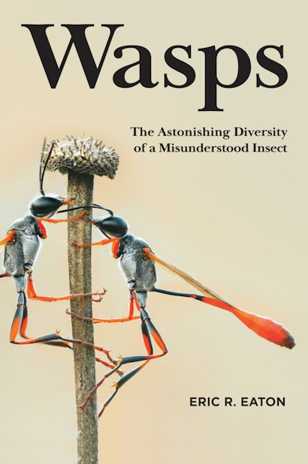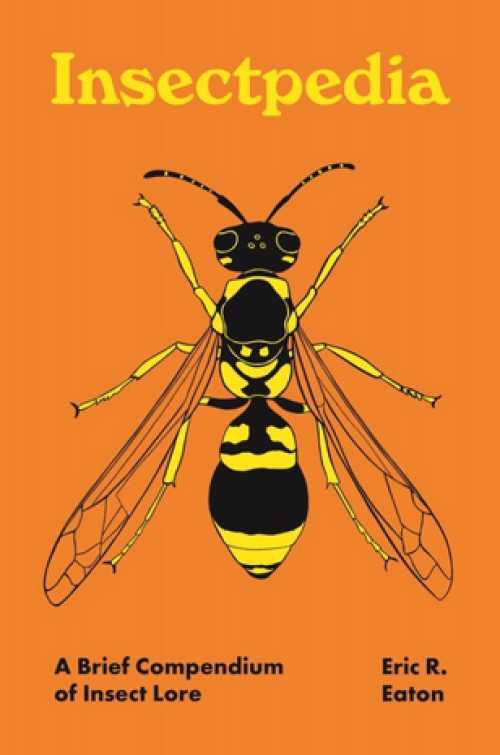About Wasps
Wasps, like bees, belong to the insect order hymenoptera.
The most common image people have of a wasp, is a yellow and black stripy winged insect, such as the Common Wasp, Vespula vulgaris.
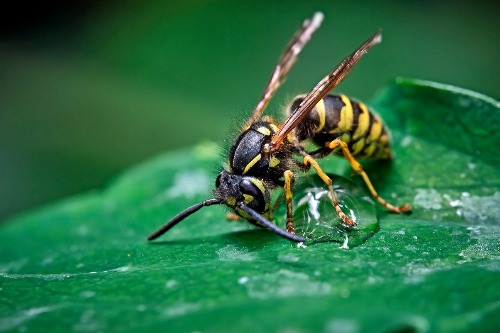 Vespula vulgaris
Vespula vulgarisThey associate such wasps with 'nuisance' - especially during the summer months whilst dining al fresco. Hungry wasps are unwelcome visitors to picnics and barbecues (even if they are helpful pollinators and pest-controllers!).
However, the above view of wasps is, in fact, rather narrow.
Wasps are amazing in their diversity! As a group of insects, they perform a crucial role in the environment.
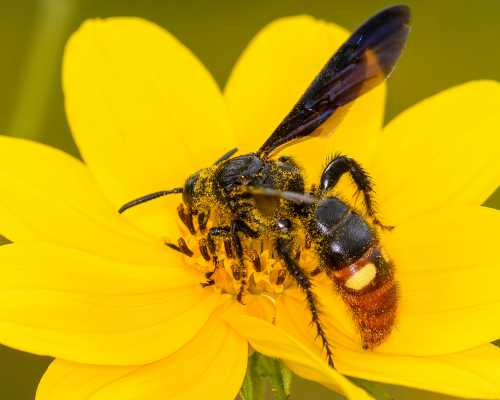 A pollinating wasp - Scolia dubia - The Blue-winged Scoliid Wasp
A pollinating wasp - Scolia dubia - The Blue-winged Scoliid WaspFor instance, the jewel wasp lays its eggs in pest cockroaches. The wasp hatches inside the cockroach, eating it from the inside out, thus helping to reduce the numbers of breeding pest cockroaches!
Parasitic wasps are also being harnessed by farmers to assist with natural pest control and protect food crops.
The often despised yellowjacket colony may take thousands of crop eating pests from gardens, farmland and the natural environment. Without wasps, we might be plagued by a worse enemy, one that eats our food or is a potential hazard to humans and livestock health.
Even the nests of paper wasps and yellow jacket species, may be useful to other wildlife as they naturally deteriorate in the wild.
As for pollination, we are still in the early stages of understanding the vital role wasps play, although we already know that some plant species rely on particular wasp species.
Although this website is largely about bees, I have quietly campaigned for wasps for years (and after all, bees and wasps are related). I am glad to see that the important role of wasps is increasingly receiving the recognition deserved.
Types Of Wasp
An introduction to the diverse world of wasps
Wasp Life Cycle
The key stages of wasp development for all species.
Amazing Facts About Wasps
Wasps may surprise you! Find out more!
Wasp FAQs
Frequently asked questions about wasps.
